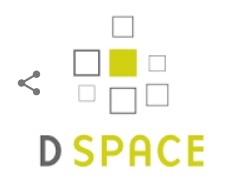A free open-source module for CKAN integration in DSpace
12/04/2018

.jpg)
4Science has released a free open-source module for CKAN integration in DSpace. The DSpace-CKAN Integration Module allows users to directly preview the dataset content deposited in a CKAN instance from DSpace via a “curation task”.
It offers the possibility to access the services provided by the CKAN data management system without leaving their DSpace installation, making users' life easier and their activities more efficient. The module allows to link the publications with the datasets and better describe the context of realization of the dataset by creating detailed records on the equipment used, the related services, the projects concerned, etc.
One of the main advantages of the Module is that it allows the management of dataset access via DSpace, without the need of getting into a CKAN instance. The CKAN datastore API is proxied by the DSpace-CRIS module, enhancing the access conditions set on the original DSpace bitstream (e.g.: the preview function is available under the same conditions of the uploaded bitstream: open access, embargo, etc.).
If structured data is uploaded or linked to CKAN as a .csv or Excel table, the DataStore loads it into a database, allowing CKAN to give a range of ways to view and process the data. Initially the data is displayed as a table. The user can sort the data on particular columns, filter or facet by values, or hide columns entirely. The data can also be displayed on a graph, choosing the variables on the axes and comparing a number of variables by graphing them together on the same y-axis.
Besides, 4Science has been awarded by OpenAIRE to implement the Guidelines for Data Repositories in DSpace(-CRIS).
For more details and examples would like to contact : [email protected]
Source: [email protected]
Related:
Open Source Year Book (by Opensource.com)
- DSpace-GLAM based on DSpace-CRIS : Manage, Analyze & Preserve your digital heritage
- DSpace community use-cases
- Data Repository for the University of Minnesota (DRUM) based on DSpace : if you want to learn more, you can take a look at a comparison of data repositories' technology, staffing, and polices (Minnesota and Cornell with DSpace and Michigan, Penn State, Illinois, and WashU with other solutions) in "Data Curation Network: How Do We Compare? A Snapshot of Six Academic Library Institutions’ Data Repository and Curation Services"
- Deep Blue Data is a repository offered by the University of Michigan Library that provides access and preservation services for digital research data that were developed or used in the support of research activities. IN 2018, Deep Blue Data has a new release with a workflow change and addition of Globus for big data downloads:
Each data set in Deep Blue Data now provides users with the option to "Send to Globus to Download". Data sets that are larger than 2GB contain a message encouraging users to use Globus as the means to download the data. Data sets that are more than 10GB in size will only be downloadable through Globus. More information about Globus and how it can be used in Deep Blue Data is available on the Deep Blue Data website. - Open Repositories 2018 : Sustaining Open
- The DSpace Community Annual Report 2017 – July 2018
- Open Standards, Data, Source, and Innovation as Principles for Digital Development
- The UN Biodiversity Lab : a scalable open-source Data platform to provide key information on the Aichi Biodiversity Targets and nature-based Sustainable Development Goals
- Collect Earth Online (CEO) next generation tool allows anyone to track land-use data and landscape changes anywhere
- Use COAR Controlled Vocabularies to enhance the Interoperability across repositories and with other related systems
- About Federated Research Data Infrastructures (FRDI) : Knowledge Exchange Report (2017)

To keep up-to-date with AIMS news, please, Sign up for AIMS Newsletter, follow @AIMS_Community on Twitter... And, thanks again for your interest !
